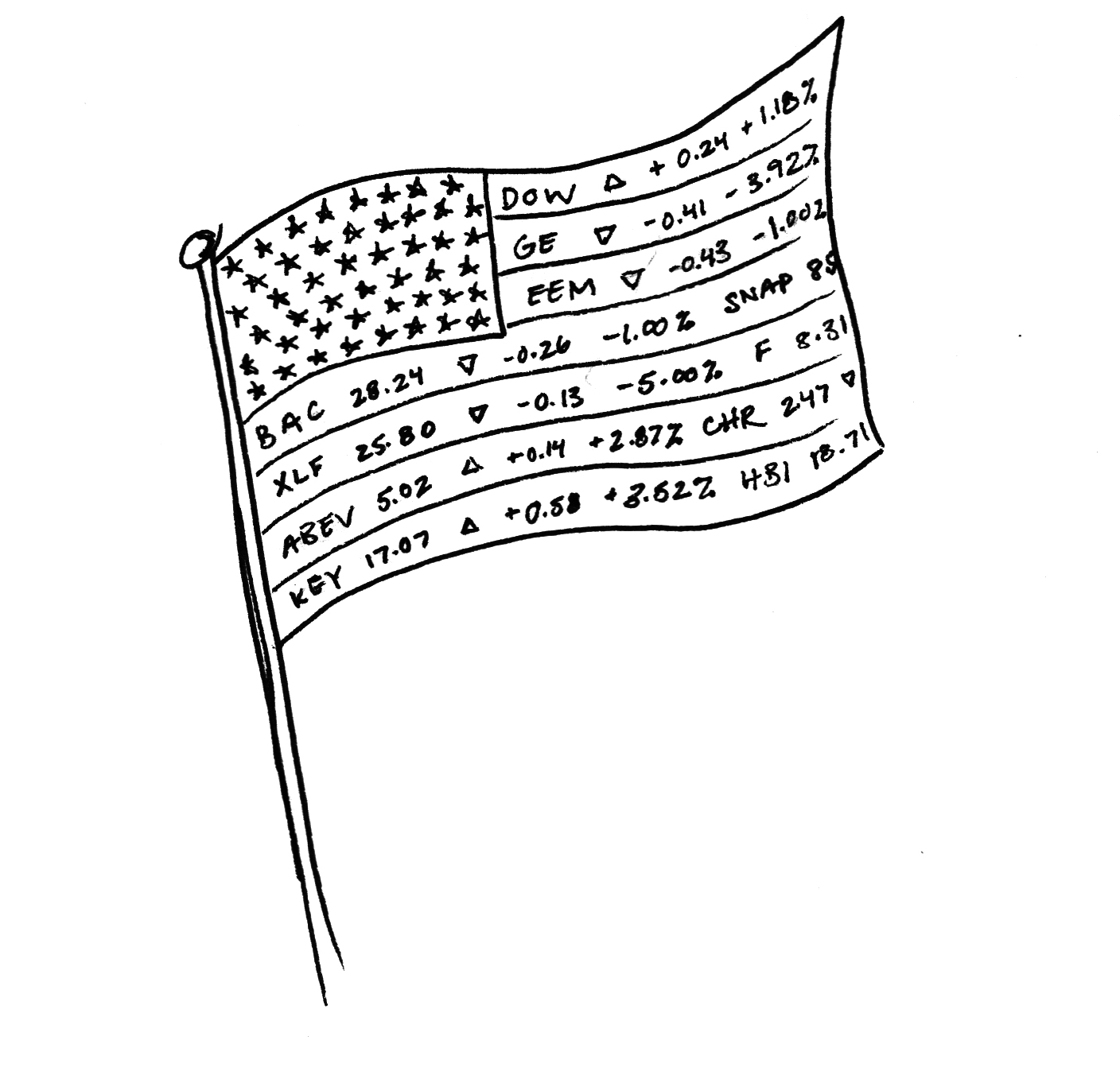The American Dream: reconsidered
February 8, 2019
 This
piece represents the opinion of the author
.
This
piece represents the opinion of the author
.
 Sydney Reaper
Sydney ReaperThe January 2019 economic report proved that little can stop the steam of the American free enterprise system. The Dow Jones Industrial Average had its best January since 1985, rising 7.2 percent; 304,000 jobs were created and wages rose 3.4 percent, the highest in a decade. However, according to Pew Charitable Trust’s latest fact sheet, 77 percent of Americans do not believe that the iconic rags-to-riches story is possible anymore—a seemingly foundational pillar of the American dream. The famed adage of the 1992 election, “It’s the economy, stupid,” evidently fails to fully encompass the character of contemporary American politics.
In his “First Discourse,” Jean-Jacques Rousseau reminded French aristocrats of a truism of state building: “The ancient politicians forever spoke of morals and virtue; ours speak only of commerce and money.” While we have experienced 243 years of unparalleled prosperity and our politicians have been the most efficient communicators of commerce and of money, our American political discourse can certainly benefit from invoking the Frenchman. Lamentably, Rousseau’s words went unresolved and his countrymen are currently living under their Fifth Republic. The United States of America was the first large republic in the history of the world. The idea of people giving themselves a government at such a great scale was not thought possible. I firmly believe the reason we’ve successfully existed under one continuous republic is because our foundation is rooted in principles that gaze upon virtue.
Our Declaration of Independence talks about certain “unalienable Rights, that among these are Life, Liberty and the pursuit of Happiness.” Nowhere written is a guarantee of income. Our Constitution aims to “secure the Blessings of Liberty to ourselves and our posterity,” and thus far it has succeeded largely due to its simplicity and enough structural malleability to ensure generational revisions. Yet, too many Americans equate current economic inequality as a justifiable reason for parading their disdain for the pillars of our republic. The Democratic governor of New York, Andrew Cuomo, recently stated, “America was never that great” in response to the slogan made famous by President Trump.
Economic inequality is real in this country, alongside many other legislative shortcomings, but we must remember that the imperfections of the American memory should never limit the potential of the American destiny. At the closing of the 1787 Constitutional Convention, a woman approached Benjamin Franklin and asked: “Well, Doctor, what have we got—a Republic or a Monarchy?” Franklin replied, “A Republic, if you can keep it.” It certainly cannot keep itself, and using 21st century moral absolutes to discount the progress of our 18th century foundation is not a way to “keep” our Republic.
Economic policy is exactly that: policy. As a young adult preparing to enter the workforce, I certainly favor positive economic conditions, but I also recognize the volatility of future human legislation. To paraphrase German Statesman Otto von Bismarck, legislation is a lot like sausage making, and the product of such a process is messy and imperfect. While I am a student of government with intentions to immerse myself in policy with the ultimate goal of writing it, I constantly remind myself that the legislative process deserves our admiration, but never our devotion.
Absolute devotion to a given economic theory and the portrayal of legislation through the lenses of “good” and “evil” are reasons for our rampant political divide. It is hard for our immensely diverse nation to unite under a single law or ideal, but I will invoke a word commonly used in 2019 lexicon: privilege. We must remember our American privilege and remind ourselves that we all exist within this system, whether we choose to believe it or not, which eyes toward virtue.
I am the son of two Cuban immigrants, and the story of my family’s diaspora is not unique to our nation. Yet, I am only one generation removed from a very different reality, and perhaps this is the reason for the lens of admiration and
opportunity through which I view this country. While my parents and grandparents lost their entire economic subsistence at the hands of a communist system, they achieved the American Dream the moment they settled in a land that permitted them the unconstrained freedom to practice their religion, educate their children and choose the manner by which to pursue their happiness.
I acknowledge my American privilege, and I am grateful for it. With only $234.50 in my bank account, I am already living the American dream.
Francisco Navarro is a member of the class of 2019.

Comments
Before submitting a comment, please review our comment policy. Some key points from the policy: